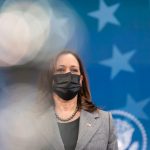The ongoing saga of the Secret Service’s apparent disregard for the safety of former President Donald Trump has reached a new low, with Acting Director Ronald Rowe’s testimony laying bare the startling mismanagement within the agency. During a recent Senate hearing related to the assassination attempt on Trump, Rowe displayed a level of defensiveness that raised eyebrows, while maintaining that resources were not withheld despite mounting evidence suggesting otherwise. One must wonder if Rowe believes that a little bit of denial can replace solid protection.
A report uncovered by Real Clear Politics suggests that Rowe was not just an innocent bystander; rather, he actively participated in the denial of crucial security resources for Trump’s rallies leading up to the assassination attempt. This included denying requests for counter-snipers, additional agents, and even enhanced screening measures for crowds attending Trump’s outdoor events. So, while Rowe insists there was a failure of “imagination” rather than a failure of logistics, it seems clear that the imagination was sorely needed to realize the seriousness of the threats against a former president.
Senator @TedCruz SLAMS acting Secret Service Director Ronald Rowe Jr. for the Secret Service’s complete failure to answer questions related to the Secret Service denying additional resources to President Trump and RFK Jr.:
“Does the buck stop ANYWHERE?!” pic.twitter.com/CmoB8UsEZJ
— Conservative War Machine (@WarMachineRR) July 30, 2024
Rowe’s predecessor, Kimberly Cheatle, has already exited the stage after less-than-stellar testimony before Congress, further highlighting the dysfunction at the highest levels of the Secret Service. It’s becoming increasingly evident that the agency is plagued by leadership that either does not take threats seriously or is willing to play politics with the lives of American citizens and their leaders. Under Rowe, who took over after Cheatle’s resignation, it would seem that the agency’s priorities are more in line with political correctness than with the safety of Trump and his supporters.
Critics are left to ponder how someone in Rowe’s position could disregard the clear and present danger surrounding Trump. The decision to deny counter-snipers for events even when he was merely a short drive from D.C. raises serious questions about his judgment and competence. Rather than securing the former president’s events, Rowe appeared to engage in a troubling game of bureaucratic chess, prioritizing resource allocation based on unspoken biases rather than on necessity.
In light of these revelations, it becomes essential to question the motivations behind the Secret Service’s decisions. With the stakes being the safety of a former president and potential future candidate, the implications of Rowe’s actions are nothing short of alarming. A commitment to ensuring safety, especially during a time of heightened tensions and political division, should come above all else. Unfortunately, what has been revealed is an agency that may have taken its eye off the ball, leaving the former president vulnerable to acts of violence that should never happen in America.




